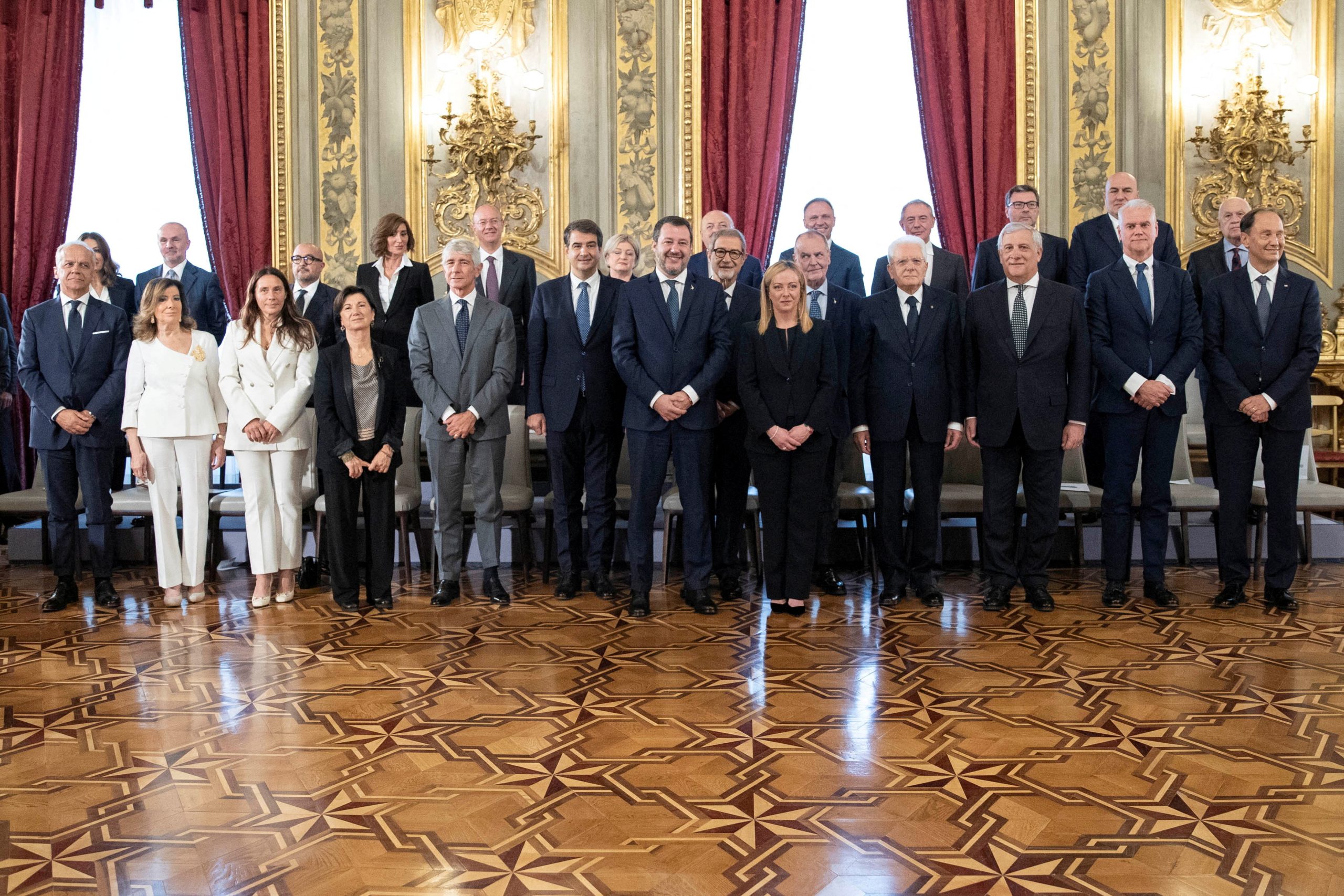
Willie R. Tubbs, FISM News
[elfsight_social_share_buttons id=”1″]
She might split opinions on the international stage, but Giorgia Meloni now officially has a seat at the international table. Saturday, Meloni was sworn in as the new prime minister of Italy, making her the first woman to hold the post.
Meloni is unabashedly pro-life, anti-woke, traditionalist in her Christian beliefs, and patriotic, all characteristics that exposed her to intense criticism from left-leaning media and political partisans.
There was no collection of words Meloni could have uttered that would have won over the political left as it exists in mass and social media – her primary political capital is being a stark alternative to modern progressivism – but she likely made sincere inroads where it counts by appealing to the key interests of her people and key Western leaders.
Indeed, Meloni and some two dozen of her cabinet members took turns proudly stating she and they would govern “in the exclusive interests of the nation.”
But Italy is in a unique place, existing as both an autonomous nation and one tied into the European Union. Strictly speaking, Italy is beholden to the EU as much as it is to Italy, which puts the nationalist Meloni in a tricky situation.
While the new prime minister has promised to be supportive of the EU, it remains to be seen how Meloni navigates the controversy that arises which pits her Italy-first mission against her desire to play nice with Europe.
European Commission President Ursula von der Leyen avoided such discussion Saturday, opting instead to offer congratulations and tweet, “I count on and look forward to constructive cooperation with the new government on the challenges we face together.”
Meloni replied she was “eager and ready to work with you to strengthen EU resilience towards our common challenges.”
The kind words were universal among Western leaders. Media partisans might fret over or celebrate what Meloni and her Brothers of Italy party mean to world or Italian politics, but leaders of nations are in no position to skirt initial diplomatic ovations.
In the United States, President Joe Biden was kind in his welcome to the newest world leader, a woman whose support will be necessary as the United States continues to pressure Russia in the east.
“I congratulate Giorgia Meloni on becoming the new Prime Minister of Italy,” Biden said in a statement. “Italy is a vital NATO ally and close partner as our nations together address shared global challenges. As leaders in the G7, I look forward to continuing to advance our support for Ukraine, hold Russia accountable for its aggression, ensure respect for human rights and democratic values, and build sustainable economic growth.”
Meloni indicated a desire to retain positive relations with America, with whom she wished to fight “for freedom and international security.”
“The United States and Italy are united by a deep friendship and by the transatlantic partnership, founded on common values,” Meloni said.
Ukrainian President Volodymyr Zelenskyy and Hungarian Prime Minister Viktor Orban also congratulated Meloni for her historic achievement. Orban and French conservative leader Marine Le Pen also celebrated another gain for right-leaning politicians in Europe.
With Europe teetering between a more expansive war and pressuring Russian President Vladimir Putin to desist, the question of where Meloni stands on Russia and Ukraine is a natural one.
On this question, more than any other foreign policy topic, Meloni answered with force. She promised that “Italy with us in government will never be the weak link of the West” and offered unilateral support of Ukraine’s war effort.
Meloni, who will preside over a coalition government, gained political ground by casting her chief political rival as a pro-Putin sympathizer.
